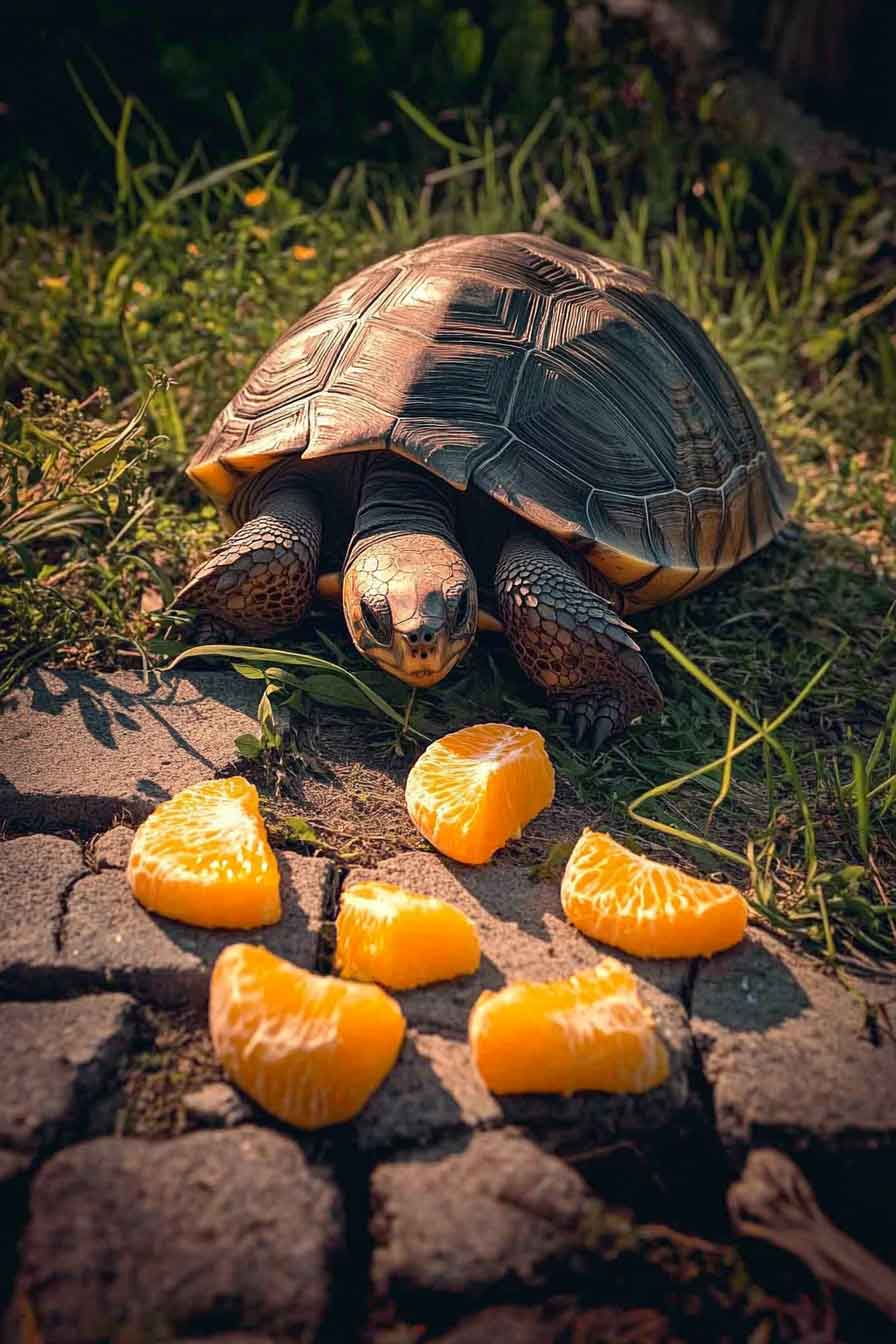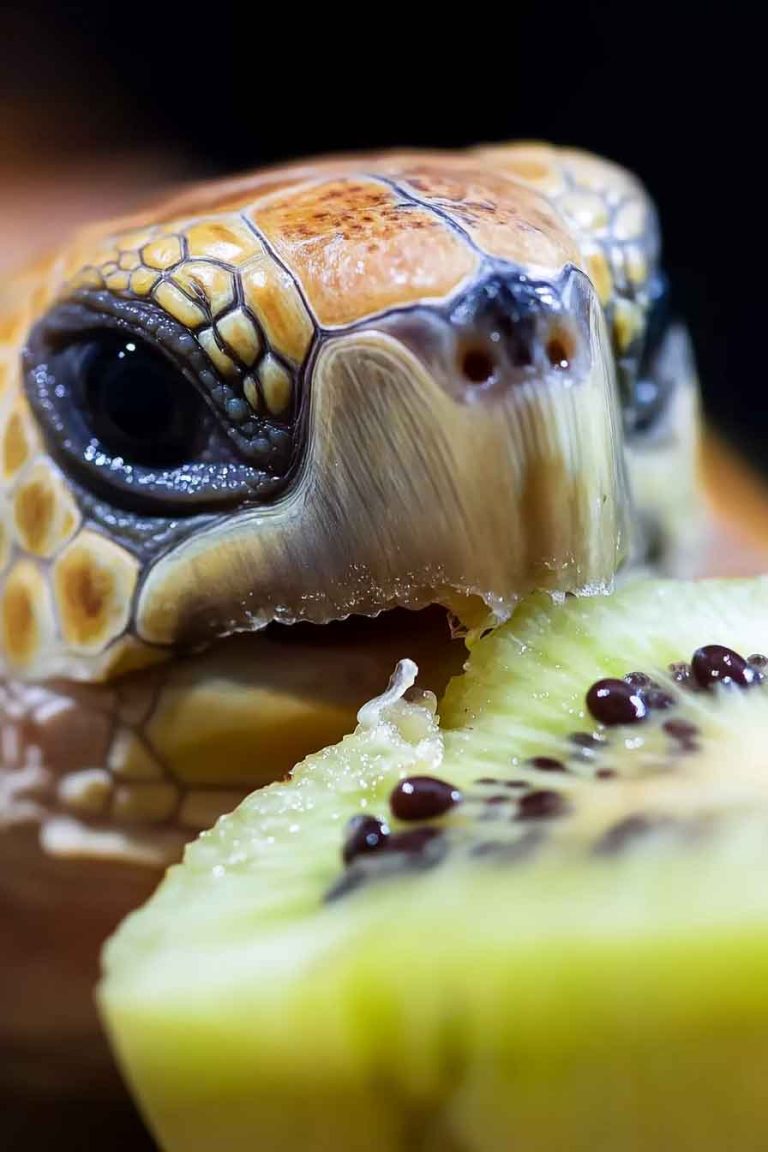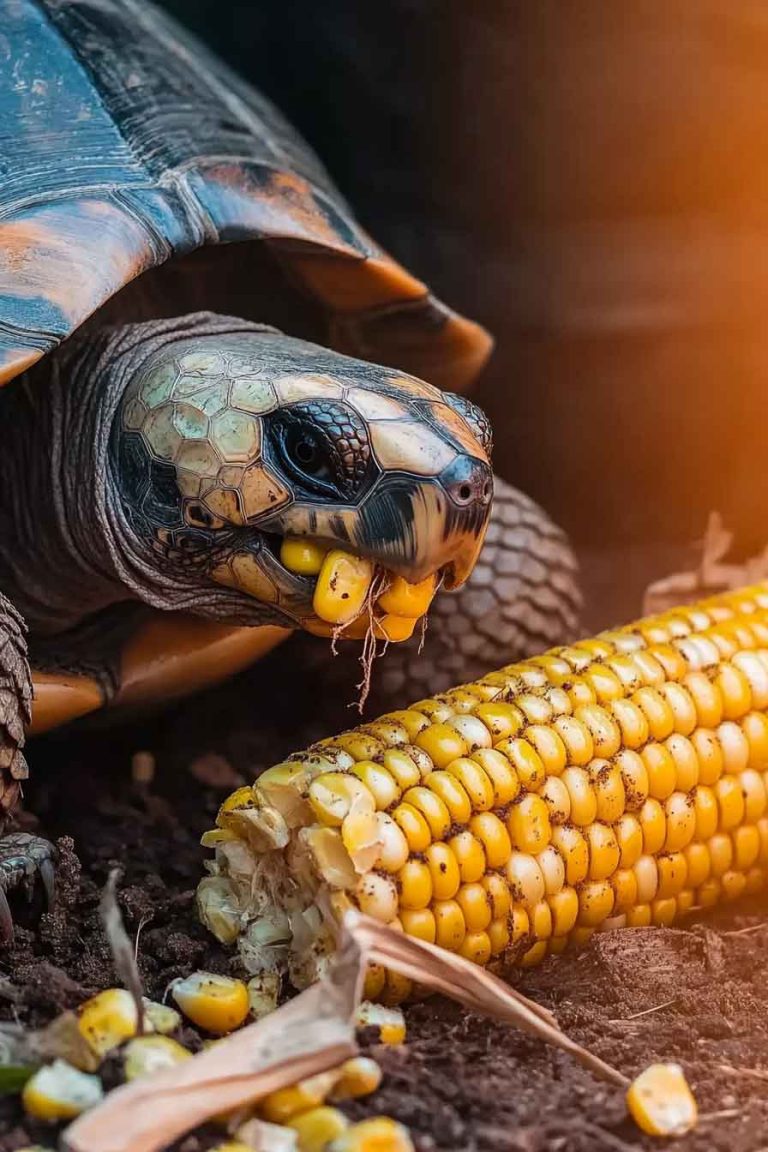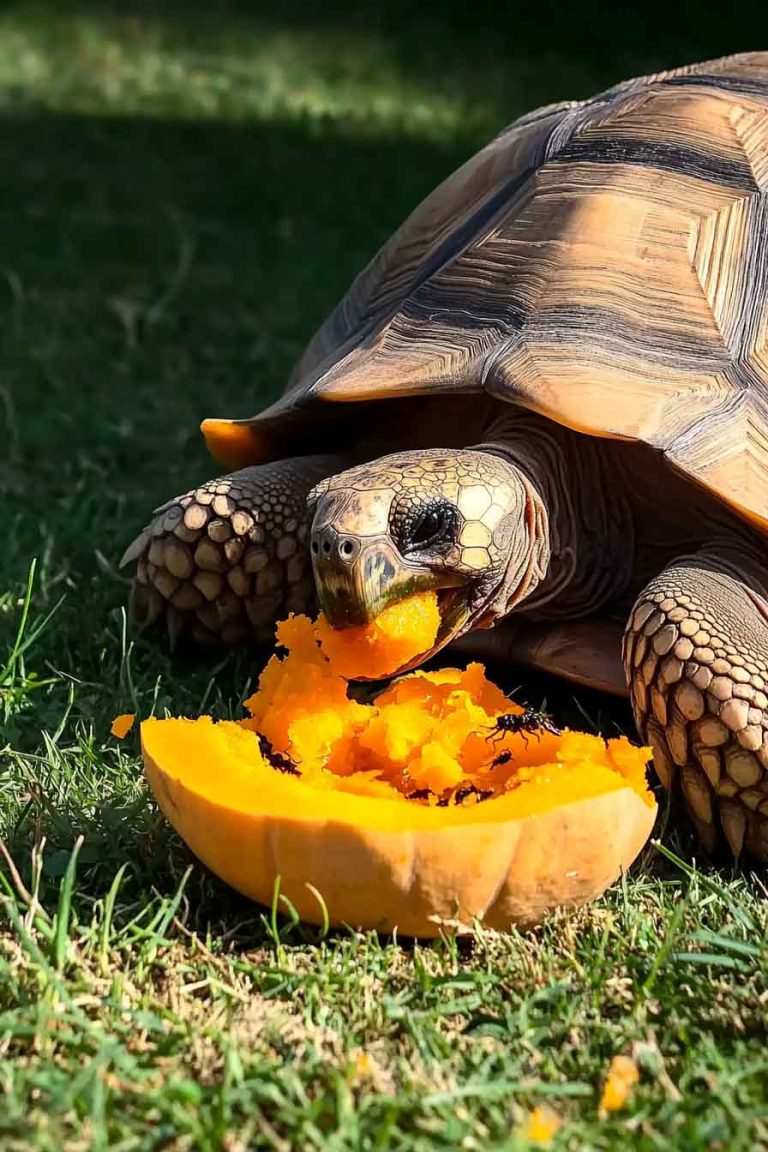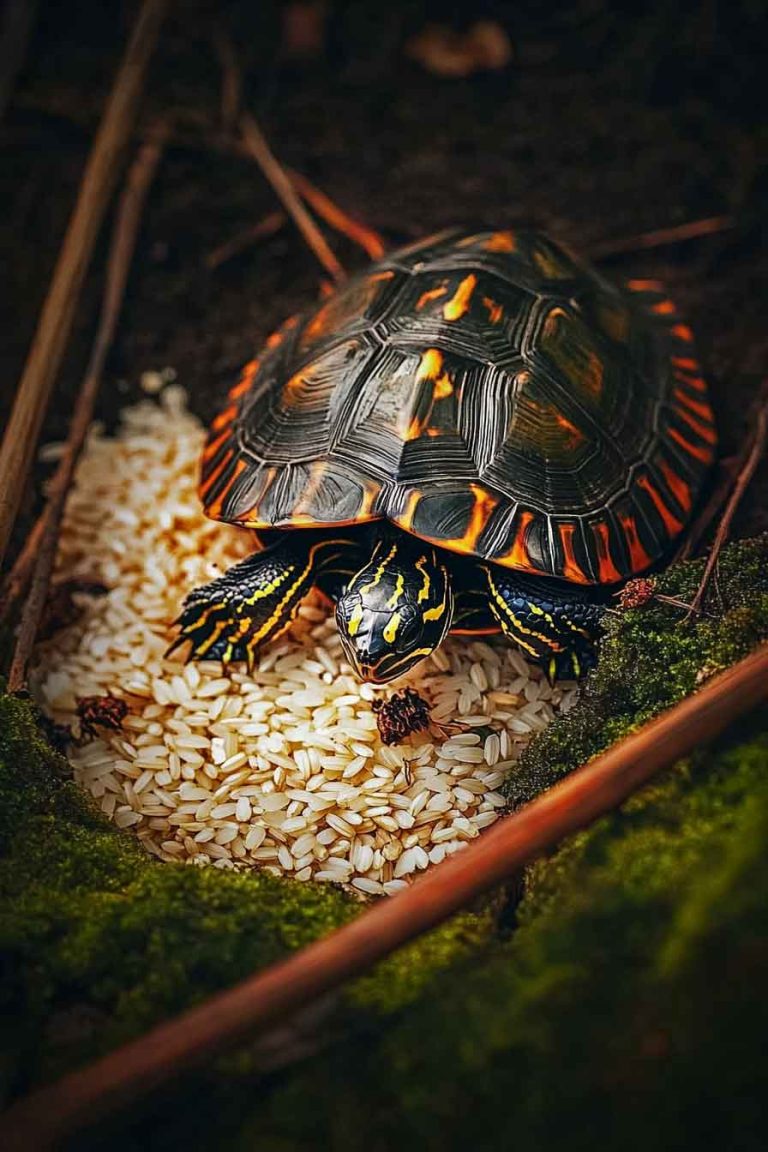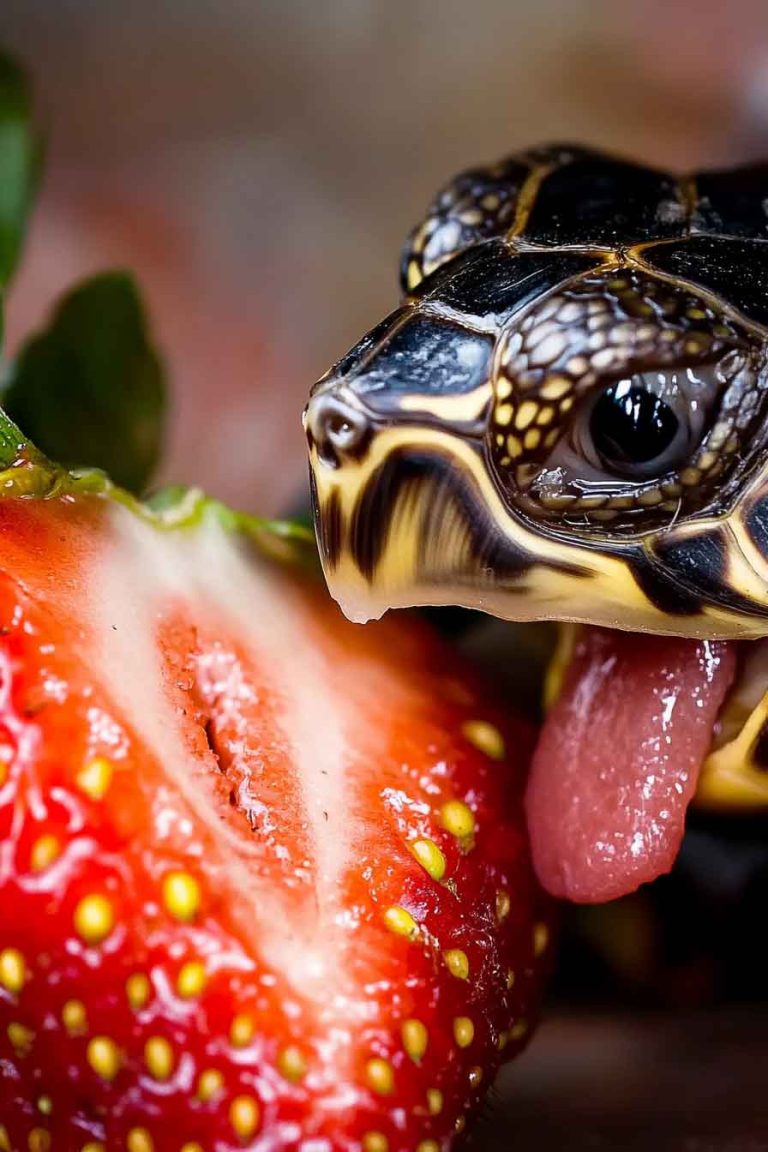Can Turtles Eat Oranges? The Shocking Truth Every Turtle Owner Must Know!
Pet turtles can safely eat a variety of fruits as part of their balanced diet. But what about oranges? These citrus fruits are packed with vitamin C and natural sugars, but they’re also highly acidic. This raises important questions about whether oranges are safe for our shelled friends. So then, can turtles eat oranges? Yes,…
Pet turtles can safely eat a variety of fruits as part of their balanced diet. But what about oranges? These citrus fruits are packed with vitamin C and natural sugars, but they’re also highly acidic. This raises important questions about whether oranges are safe for our shelled friends.
So then, can turtles eat oranges? Yes, most pet turtles can eat oranges safely, but only in very small amounts and occasionally. Oranges provide excellent vitamin C, fiber, and potassium that can benefit your turtle’s health. However, their high acidity and sugar content mean they should only be offered as a rare treat.
But there is much more to it than that! So, check out our comprehensive guide on how to safely feed oranges to your turtles.
Can You Feed Oranges To Your Pet Turtles?
The simple answer is yes, but with important caveats. You can feed small pieces of orange to your pet turtles as an occasional treat. After all, these reptiles are omnivores and can benefit from eating a variety of fruits for the nutrients they provide. However, oranges should be given much more sparingly than other fruits due to their high acidity.
Besides, like other citrus fruits, oranges contain beneficial nutrients for your turtles when given in moderation. They feature minerals such as potassium, calcium, magnesium, and folate. The fruit also packs powerful antioxidants and essential vitamins, particularly vitamin C.
Additionally, oranges are a good source of dietary fiber and natural sugars for quick energy. However, the high acid content can potentially cause digestive upset if fed too frequently or in large quantities. Check out this table to better understand the nutritional value of oranges.
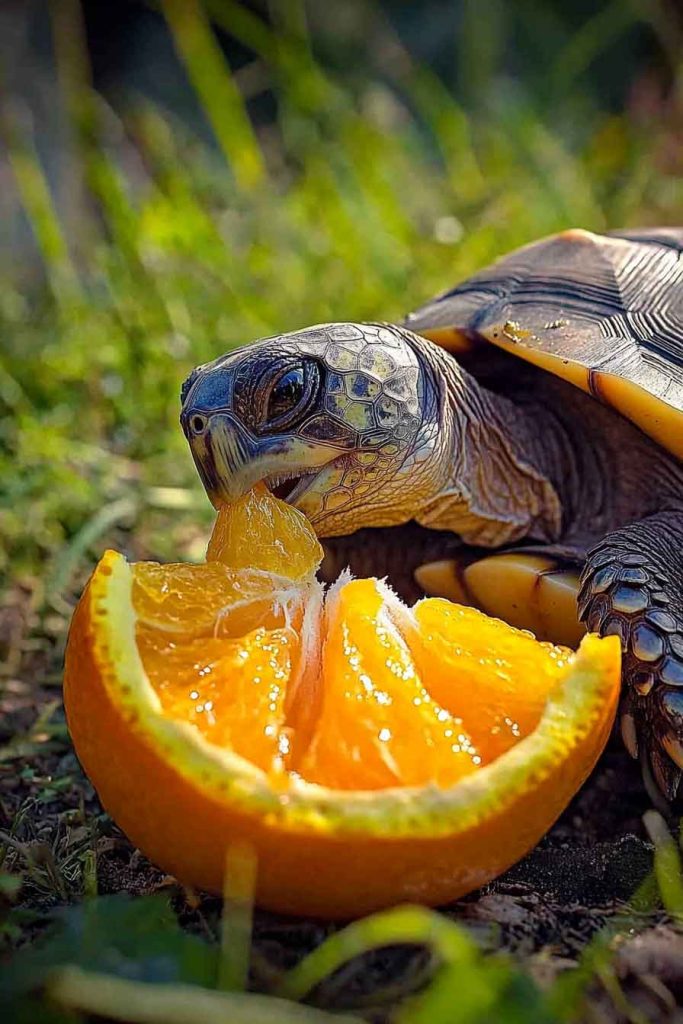
Nutritional Value Of 1 Medium Orange (154 g)
| Nutrient | Amount Per Serving |
|---|---|
| Water | 131 g |
| Protein | 1.23 g |
| Fat | 0.15 g |
| Fiber | 3.1 g |
| Sugars | 12.2 g |
| Vitamin C | 70 mg |
| Calcium | 40 mg |
| Magnesium | 10 mg |
| Phosphorous | 14 mg |
| Potassium | 237 mg |
| Folate | 40 mcg |
Looking at the table above, you can see why oranges can be a beneficial addition to your turtle’s diet when given appropriately. That said, you should only feed your reptiles fresh oranges, never processed orange juice or canned oranges with added sugars.
Fresh oranges are always the best choice because they contain the full spectrum of nutrients and fiber. Avoid orange juice completely, as it concentrates the sugars and acids while removing the beneficial fiber that helps slow sugar absorption.
Do Turtles Like Oranges?
Most turtles do enjoy oranges because of their sweet, juicy flavor. The natural sugars in oranges make them appealing to most pet turtles, who generally prefer fruits over vegetables due to their sweet taste. However, some turtles may be put off by the strong citrus scent or acidic taste initially.
Health Benefits For Turtles Eating Oranges
Oranges are nutrient-dense fruits with several essential vitamins and minerals. Because of this, there are several health benefits for your turtles eating small amounts of oranges occasionally, including:
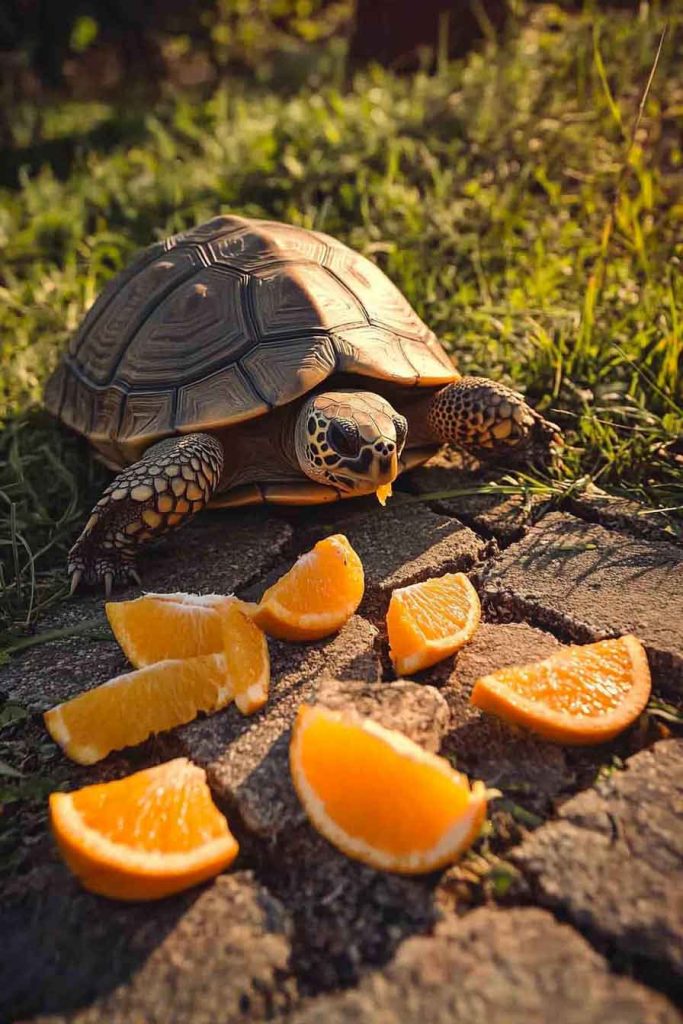
Boosts Immune System
Oranges are exceptionally rich in vitamin C, which plays a crucial role in supporting your turtle’s immune system. This powerful antioxidant helps protect against infections and supports overall health and vitality.
Supports Healthy Shell Development
The calcium and phosphorus in oranges, when balanced with other dietary sources, can contribute to healthy shell development and maintenance in growing turtles.
Promotes Healthy Digestion
Oranges contain good amounts of dietary fiber and water content, which can support digestive health when given as part of a balanced diet. The fiber helps maintain regular bowel movements.
Provides Essential Antioxidants
These citrus fruits contain flavonoids and other antioxidants that help combat free radicals in your turtle’s body, potentially reducing the risk of various health issues.
Supports Hydration
With their high water content, oranges can contribute to your turtle’s daily hydration needs, especially important for species that don’t drink water frequently.
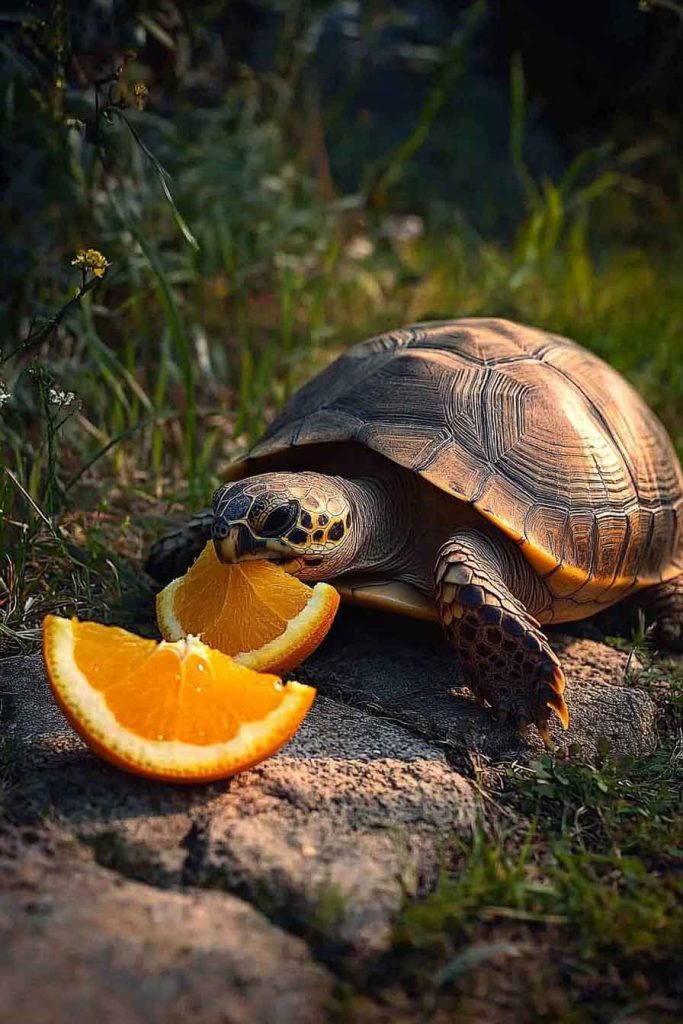
How Much Orange Should Turtles Eat?
Pet turtles should eat oranges very sparingly – perhaps just one or two small segments once every two weeks at most. This is because oranges are highly acidic and contain significant natural sugars, which can cause digestive upset and other health issues if given too frequently.
The general rule is that only 10-15% of your turtle’s diet should comprise fruits, and oranges should make up only a tiny fraction of that fruit portion due to their acidity. Always prioritize less acidic fruits like berries, melons, and apples over citrus fruits.
How Do You Prepare Oranges For Turtles?
If feeding your turtle fresh oranges, start by washing the fruit thoroughly. Peel the orange completely, removing all the white pith, as this can be difficult for turtles to digest. Remove all seeds, as these can pose a choking hazard and may contain compounds that are harmful to turtles.
Cut the orange segments into small, manageable pieces appropriate for your turtle’s size. For smaller turtles, cut segments into quarters or smaller pieces. Remove any remaining white membrane if possible, as this adds to the acidity.
Serve the orange pieces in your turtle’s regular feeding bowl, and remove any uneaten pieces after a few hours to prevent spoilage. Never leave citrus fruits in the enclosure overnight.
Can You Feed Oranges To Baby Turtles? If So, How?
You can feed oranges to baby turtles, but with even greater caution than adults. Baby turtles have more sensitive digestive systems, so oranges should be given even more sparingly – perhaps just a tiny piece once a month.
First, prepare the orange as described above, then cut it into very small pieces appropriate for the baby turtle’s mouth size. You can also mash a small piece of orange and mix it with their regular food to introduce the flavor gradually. Always monitor baby turtles closely after giving them any new food.
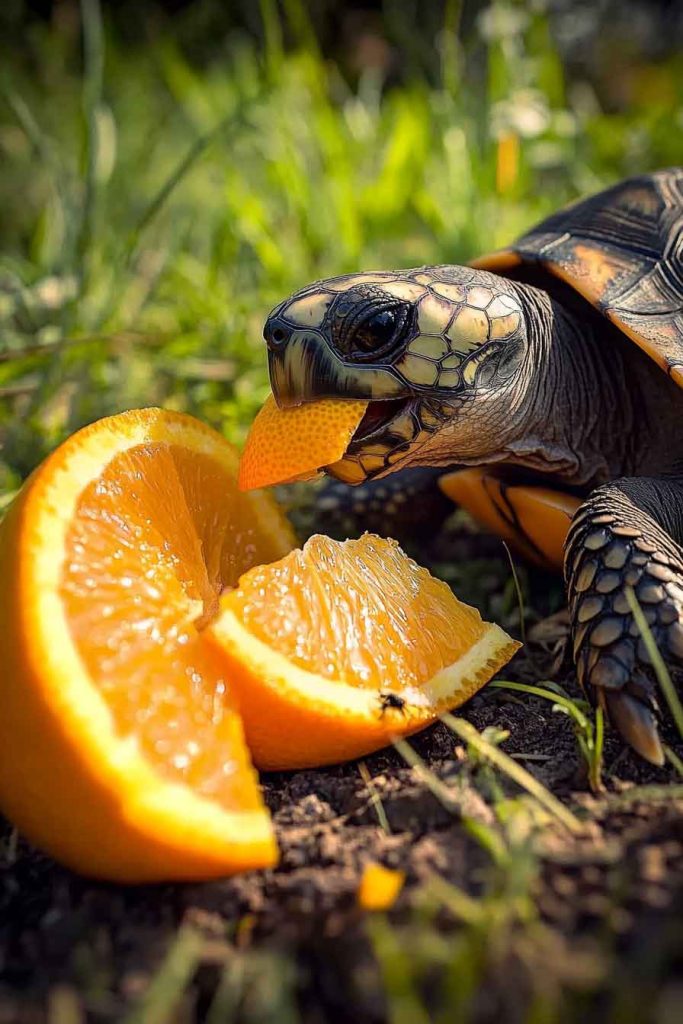
Frequently Asked Questions (FAQs)
1. Can Box Turtles Eat Oranges?
Yes, box turtles can eat small amounts of orange occasionally. However, due to their primarily terrestrial diet and sensitive digestive systems, box turtles should be given oranges even more sparingly than aquatic species – perhaps just a small piece once a month as a special treat.
2. Can Red-Eared Slider Turtles Eat Oranges?
Red-eared slider turtles can eat oranges in very small quantities as an occasional treat. Since their diet should be primarily aquatic plants and proteins as adults, oranges should only represent a tiny fraction of their fruit intake. Too much citrus can cause digestive issues and interfere with calcium absorption.
3. Can Painted Turtles Eat Oranges?
Painted turtles can safely eat small pieces of orange occasionally. Like other turtle species, they should only receive oranges as a rare treat due to the high acidity. Always remove the peel, seeds, and as much white pith as possible before serving.
Conclusion
Turtles can enjoy eating oranges as a very occasional treat, but these citrus fruits require more caution than other fruits. While oranges are packed with beneficial vitamin C, fiber, and other nutrients, their high acidity and sugar content mean they should only be offered sparingly to prevent digestive issues.
The key is moderation – a small piece of orange once every two weeks is sufficient for most adult turtles, with baby turtles needing even less frequent offerings. Always prepare oranges properly by removing peels, seeds, and pith, and never substitute orange juice for fresh fruit.
Remember that oranges should never be a dietary staple but rather a special treat that adds variety to your turtle’s nutritionally balanced diet. When in doubt, consult with a reptile veterinarian about the best diet for your specific turtle species.
Do you want to know if turtles can eat other citrus fruits or apples? Read our other articles to learn more about safe fruits for your pet turtle.

